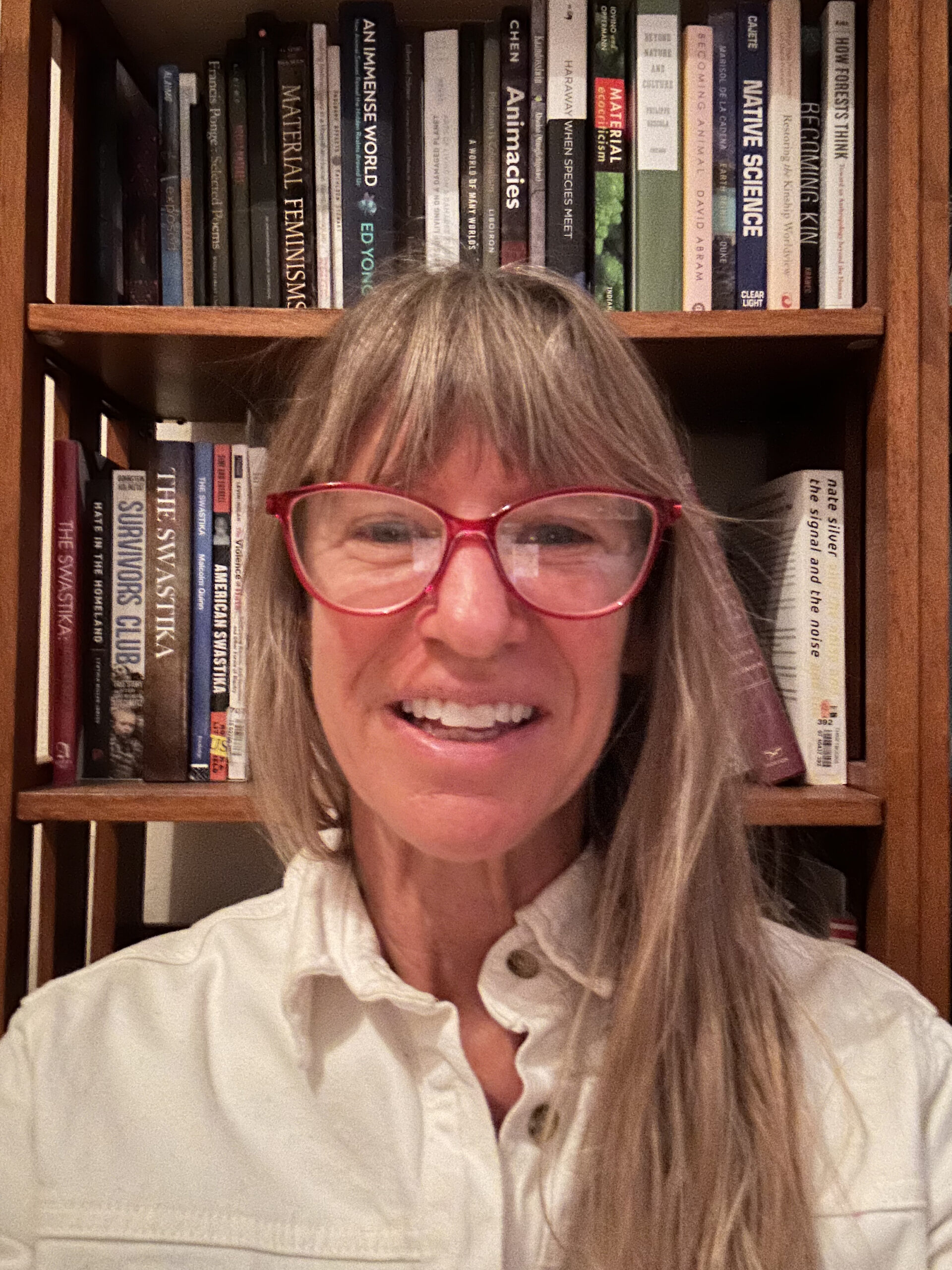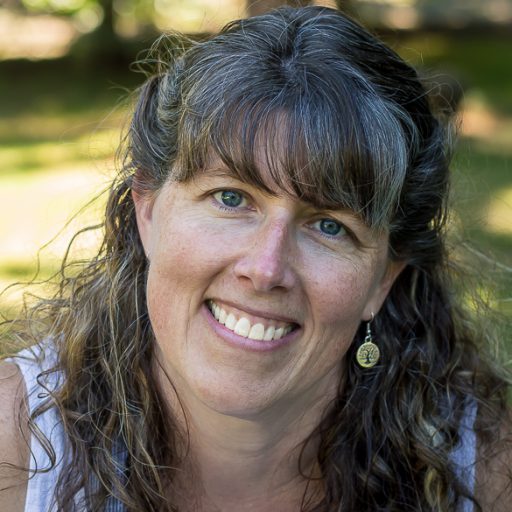The Swastika Counter Project is led by Dr. Laurie Gries and co-developed with Dr. Kelly L. Wheeler but would not have been possible without the significant contributions of numerous scholars, students, teachers, and critical geographers working at the University of Colorado Boulder, the University of Michigan, and Curry College as well as the consultation of our advisory board. While no official grants were used to fund this project, personal research funds awarded to Gries and Wheeler by CU Boulder and U of Michigan, respectively, helped to pay for mapping, visualization, and content delivery needs.
Meet Our Project Managers

Director: Dr. Laurie E. Gries, Associate Professor, University of Colorado Boulder
Laurie Gries is a rhetoric scholar who studies the way that visual images circulate, transform, and contribute to collective life. She is author of Still Life with Rhetoric: A New Materialist Approach for Visual Rhetorics and lead author of two edited collections and multiple scholarly articles. She began this project in early 2017 in the wake of intensifying hate and violence on the streets of the United States. As a researcher, she is committed to tracking the ways visual images contribute to antisemitism and other mechanisms of white supremacy within and beyond the United States. As a teacher, she regularly teaches courses in writing, public activism, and civic engagement and is currently leading a 3-year grant project to develop data advocacy curricula for higher education.

Co-Director: Dr. Kelly L. Wheeler, Assistant Professor, Curry College
Kelly L. Wheeler is an Assistant Professor of Writing at Curry College in Milton, MA. She earned her PhD from the Joint Program English and Education at the University of Michigan in 2022. Previously to earning her PhD, she taught English for 21 years at the secondary level in Washington state and served on the Education Advisory Board for the Holocaust Center for Humanity (formerly the Washington State Holocaust Education Resource Center). She is also the Holocaust Education Liaison for Museum Without Walls, a non-profit that focuses on history and social justice in the United States and abroad. Her scholarly presentations have included digital access and disability as well as how identity influences propaganda’s effectiveness in online spaces. Her current scholarship focuses on mapping the rhetorical function of swastikas within communities as assemblages of justice or injustice.